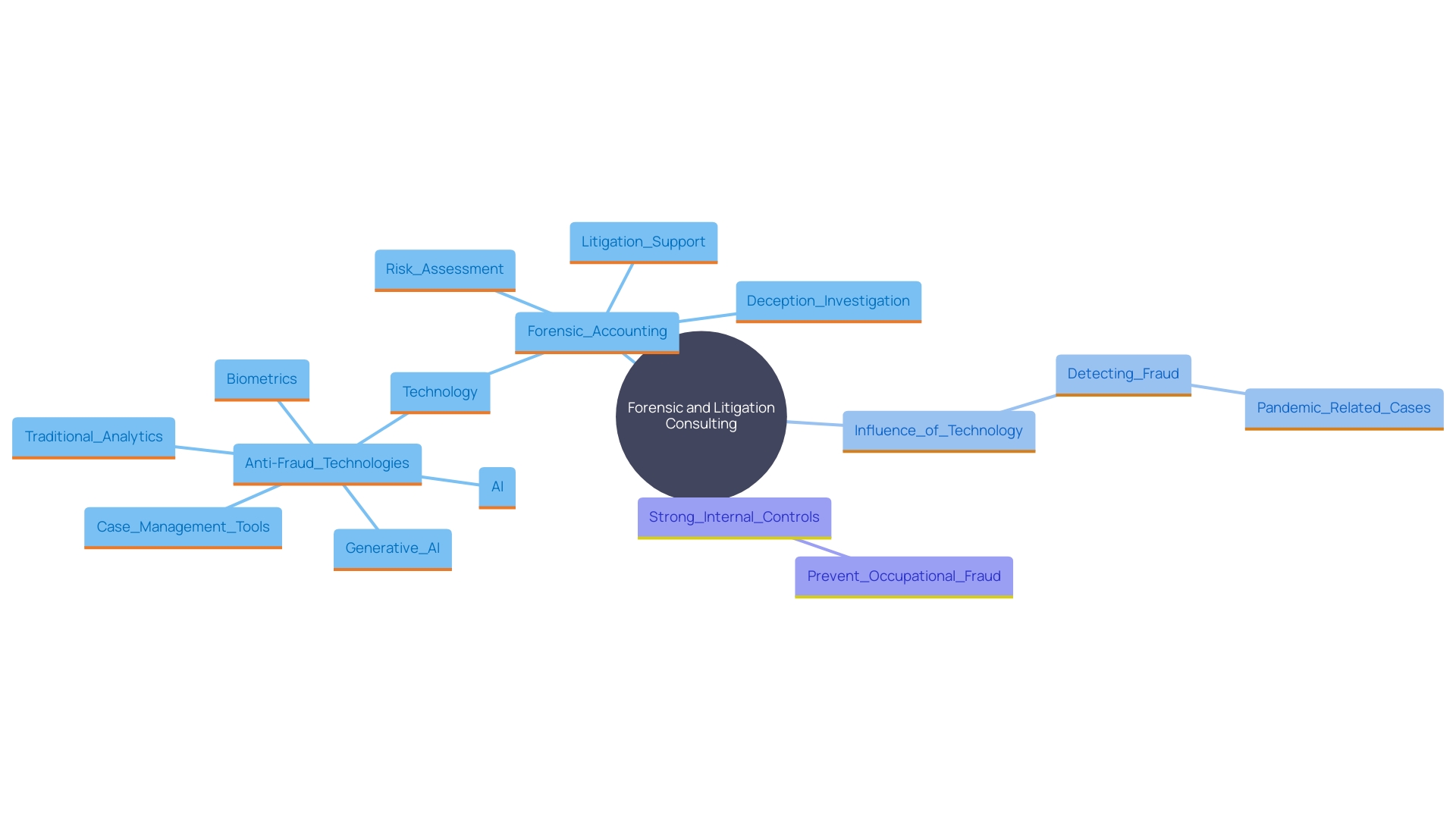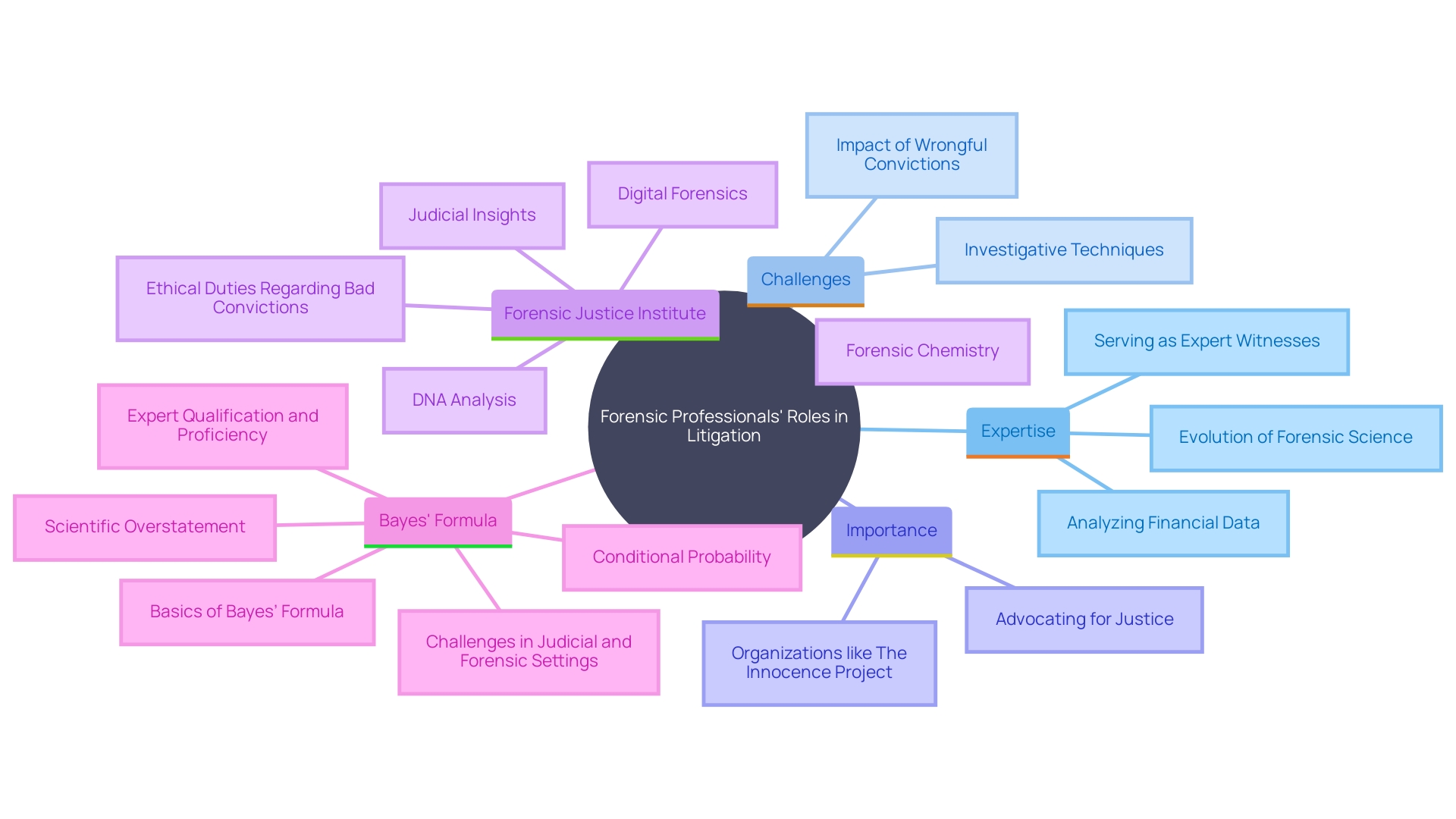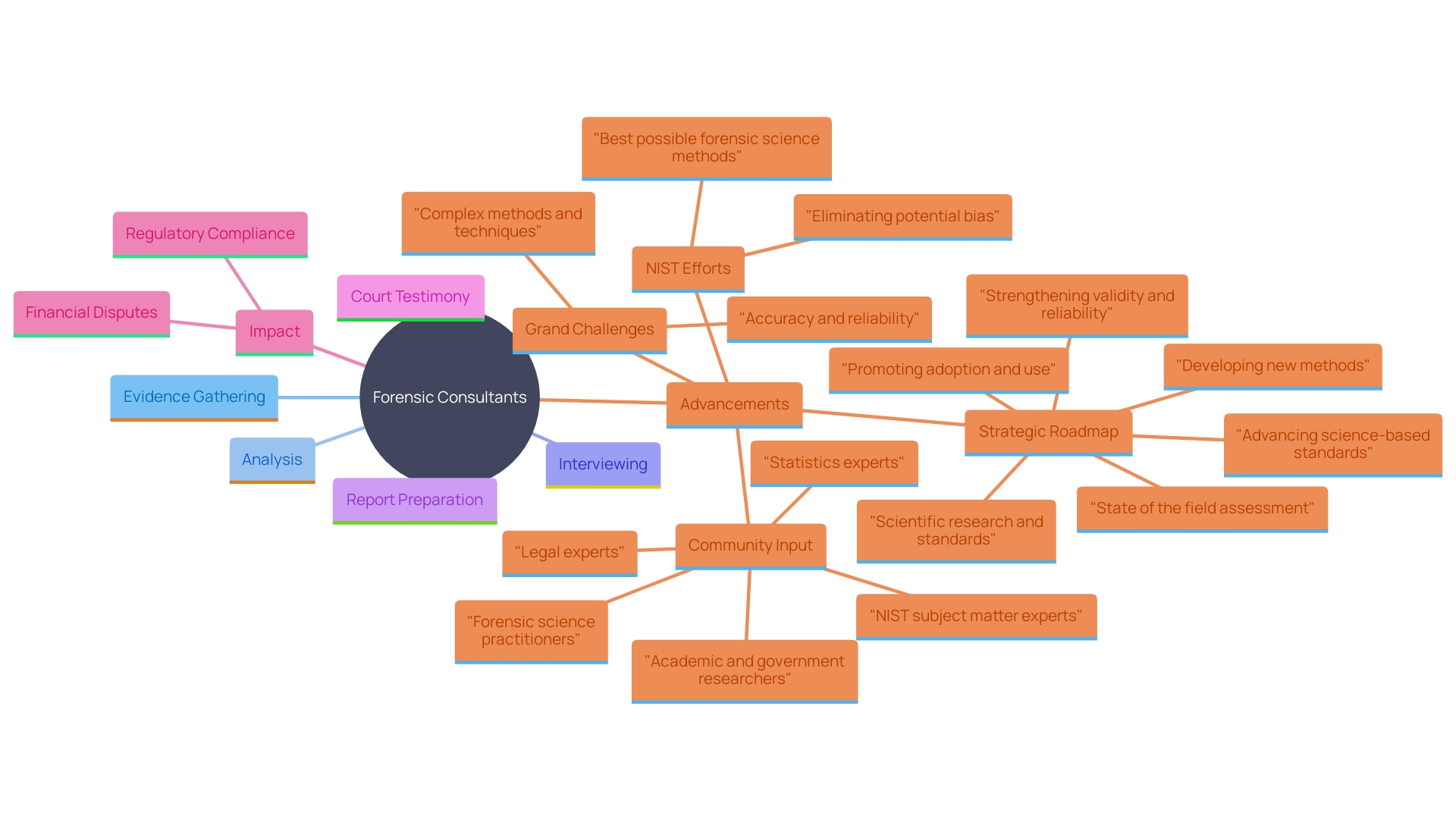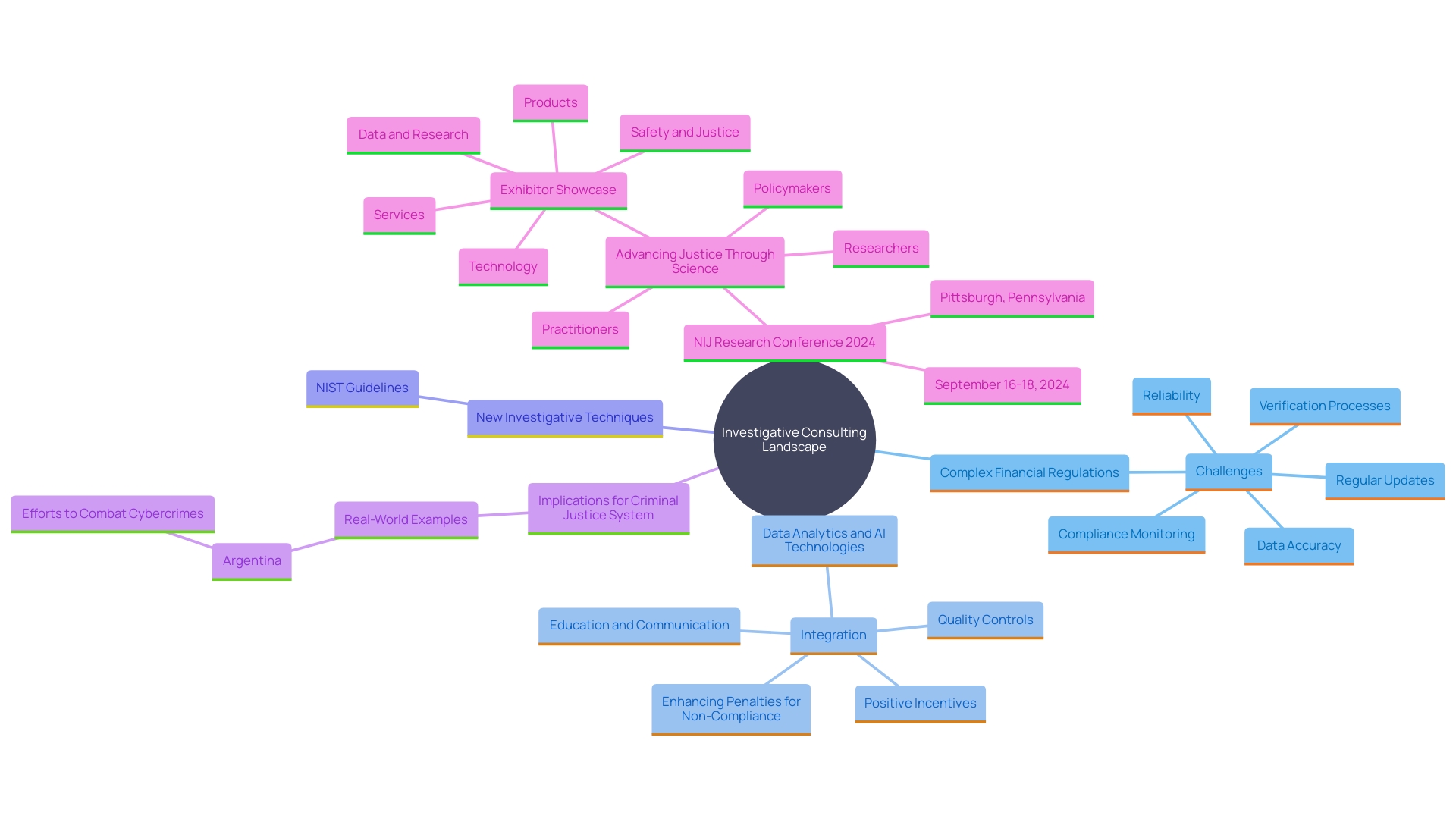Introduction
Forensic and litigation consulting is increasingly vital in today's complex legal landscape, offering essential services to address disputes, fraud, and regulatory compliance issues. This article delves into the core areas of forensic accounting, fraud investigation, litigation support, and risk assessment, highlighting the indispensable role of forensic experts in litigation. Through a meticulous analysis of financial data and expert testimony, these professionals provide critical insights that bolster legal cases.
The evolving field of forensic science, driven by advancements in technology and data analytics, underscores the need for reliable, science-based standards to ensure justice and public trust. As forensic consultants navigate the challenges of sophisticated fraud schemes and regulatory scrutiny, their ability to integrate cutting-edge techniques and maintain objectivity is crucial for achieving accurate and credible results in legal proceedings.
Core Services in Forensic & Litigation Consulting
Forensic and litigation consulting provides essential services to examine and settle disputes, deceit, and compliance matters. Essential services encompass forensic accounting, deception investigation, litigation support, and risk assessment. Forensic accountants explore financial documents to identify inconsistencies, while investigators focus on and reduce deceptive practices. Litigation support provides legal teams with expert testimony, evidence gathering, and document analysis to ensure clients are fully prepared for court. With 53% of deceptive cases during the pandemic involving at least one pandemic-related factor, the role of technology and data analytics in uncovering wrongdoing has become indispensable. A comprehensive approach to anti-fraud controls is crucial, as over half of occupational frauds occur due to lack of internal controls or their override. As technology evolves, the integration of AI in services is rapidly advancing, enhancing the efficiency and effectiveness of forensic and litigation consulting.

The Role of Forensic Experts in Litigation
Forensic professionals are essential in the litigation process, providing specialized knowledge that supports legal cases through critical analysis of financial data and transactions. Their expertise often reveals areas of concern requiring deeper examination, thereby assisting attorneys in comprehending complex financial concepts. Forensic professionals also serve as expert witnesses during trials, providing impartial opinions as mandated under the Federal Rule of Evidence 702, which requires that an expert's testimony be based on sufficient facts and reliable principles.
Forensic science has evolved significantly, with a focus on strengthening the validity and reliability of existing methods. The National Institute of Standards and Technology (NIST) emphasizes the need for scientific research and standards to address challenges in investigative disciplines. By advancing science-based standards and guidelines, the investigative community can fortify the criminal justice system, ensuring fairness and public trust.
Despite these advancements, investigative techniques have faced scrutiny. Key findings across 34 investigative evidence categories reveal errors related to blood typing, testimony inaccuracies, and best practice failures. These issues have contributed to wrongful convictions, a significant travesty in the justice system. As of 2023, The National Registry of Exonerations has documented more than 3,000 wrongful convictions in the U.S., with flawed scientific analysis recognized as a contributing factor.
Dr. Jon Gould, a specialist on the effects of investigative science on wrongful convictions, emphasizes inaccurate eyewitness identification, confessions, and investigative practices as elements contributing to these injustices. Organizations like The Innocence Project work tirelessly to exonerate the innocent, having freed 375 individuals to date, including 21 from death row. These efforts highlight the essential function of forensic professionals in ensuring justice and the significance of continuous progress in forensic science.

Key Functions of Forensic Consultants
Forensic consultants play a pivotal role in modern investigations and legal proceedings. They meticulously gather and analyze evidence, ensuring the highest levels of accuracy and reliability. Conducting interviews and providing knowledgeable opinions, these professionals offer insights that are crucial for resolving financial disputes and adhering to regulatory compliance. Their knowledge is not only instrumental in preparing detailed reports that document their methodologies and conclusions but also in serving as specialist witnesses in court. The importance of their impartial opinions, as mandated under the Federal Rule of Evidence 702, cannot be overstated. For example, Bhatti, a specialist in criminal investigations, was acknowledged by the judiciary for her careful and professional method in a major financial fraud case. This recognition underscores the value of expert witnesses in judicial proceedings. Furthermore, advancements in crime scene investigation, as highlighted by the National Institute of Standards and Technology (NIST), emphasize the need for valid, reliable, and consistent methods. By adopting these advanced techniques, investigative consultants help strengthen the foundations of the criminal justice system, ensuring fairness and public trust.

Benefits of Using Forensic Consultants in Legal Cases
Involving investigative experts offers significant benefits in court cases. 'Their expert knowledge enables more streamlined investigations, significantly reducing the time and expenses associated with judicial proceedings.'. Forensic consultants ensure objectivity in analysis, enhancing the credibility and reliability of the findings. According to a recent NIST report, encouraging the acceptance and implementation of advanced investigative science standards and guidelines can result in more valid, reliable, and consistent practices. Additionally, their ability to convey complex information in a clear and understandable manner improves communication with legal teams and clients, leading to better strategic decisions. As NIST Director Laurie LoCascio emphasizes, enhancing the science that underpins investigative practices is essential for progressing the field and guaranteeing the foundations of the criminal justice system stay strong and unbiased.
Challenges and Trends in Forensic Consulting
The investigation consulting landscape is increasingly fraught with challenges such as the complexity of financial regulations and the sophistication of fraud schemes. Technological advancements require that investigative consultants incorporate data analytics and digital examination into their analytical processes. According to the National Institute of Standards and Technology (NIST), the investigative science community stands at a pivotal point to enhance the validity, reliability, and consistency of investigative methods. NIST's strategic roadmap emphasizes the development of new investigative analysis techniques, especially those leveraging algorithms and AI, to provide rapid and insightful analyses of complex evidence.
Increased regulatory examination and the need for proactive risk management propel the rising demand for investigative services across various sectors. The recent NIST report outlines how these trends necessitate the adoption of advanced investigative practices, standards, and guidelines. For example, the collapse of Wirecard in 2020, due to a massive financial statement deception, underscores the need for sophisticated detection methods. Ai's role in enhancing the accuracy and efficiency of fraud detection is becoming more apparent, demonstrating its potential to revolutionize investigative processes.
The investigative community has significant opportunities to develop new methods for analyzing evidence and promoting the use of science-based standards. As Laurie LoCascio, NIST Director, notes, these advancements will strengthen the criminal justice system's foundations, ensuring fairness and public trust. Real-world successes, such as the pioneering efforts in Argentina to combat cryptocurrency-related cybercrimes, highlight the impactful role of investigative consulting in addressing emerging threats. By staying abreast of these trends and incorporating cutting-edge technologies, forensic consultants can deliver effective solutions and maintain a competitive edge.

Conclusion
Forensic and litigation consulting is crucial in today’s legal landscape, offering essential services such as forensic accounting, fraud investigation, and litigation support. The integration of technology and data analytics is vital for detecting increasingly sophisticated fraud schemes, highlighting the need for robust internal controls to mitigate risks.
Forensic experts enhance the litigation process by providing specialized knowledge and objective analysis of complex financial data. Their expert testimonies are invaluable to legal teams, strengthening cases and ensuring informed decision-making. Despite advancements in forensic science, ongoing scrutiny of methodologies emphasizes the need for continual improvement to prevent errors that may lead to wrongful convictions.
Engaging forensic consultants brings numerous advantages, including streamlined investigations and increased credibility of findings. As the landscape evolves, these professionals must address challenges such as regulatory scrutiny and sophisticated fraud schemes by adopting innovative practices and advanced techniques.
In summary, the importance of forensic and litigation consulting cannot be overstated. A commitment to cutting-edge methods and rigorous standards will enhance the accuracy and reliability of forensic findings while reinforcing public trust in the justice system. Proactively engaging forensic consultants will drive the future of legal investigations, ensuring that justice is served efficiently and effectively.




